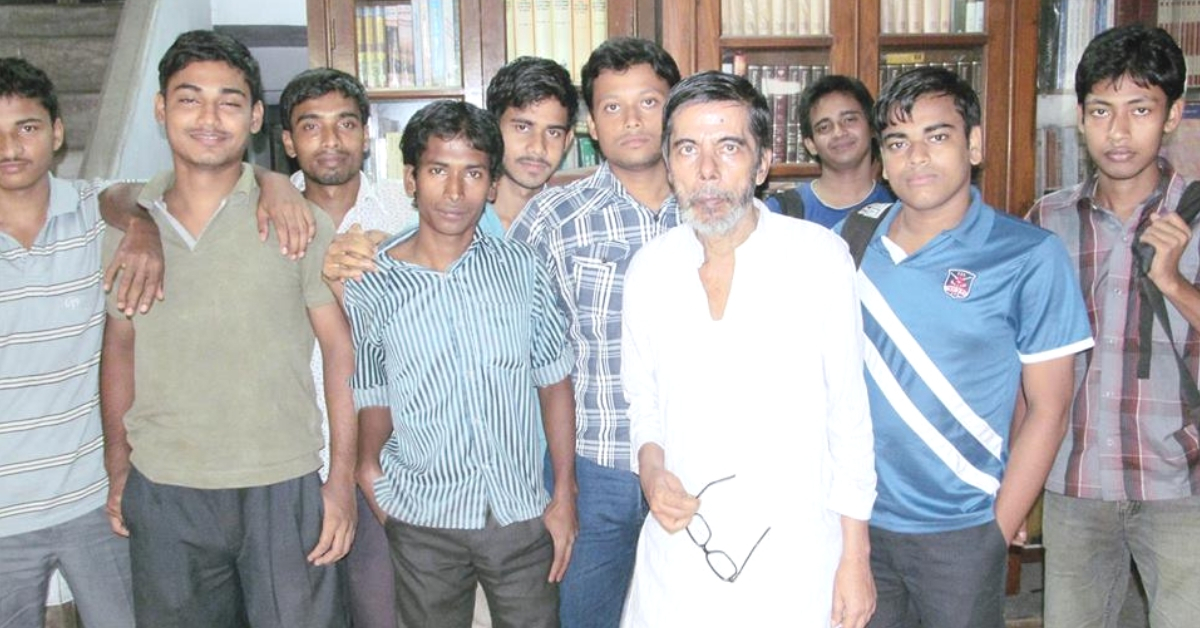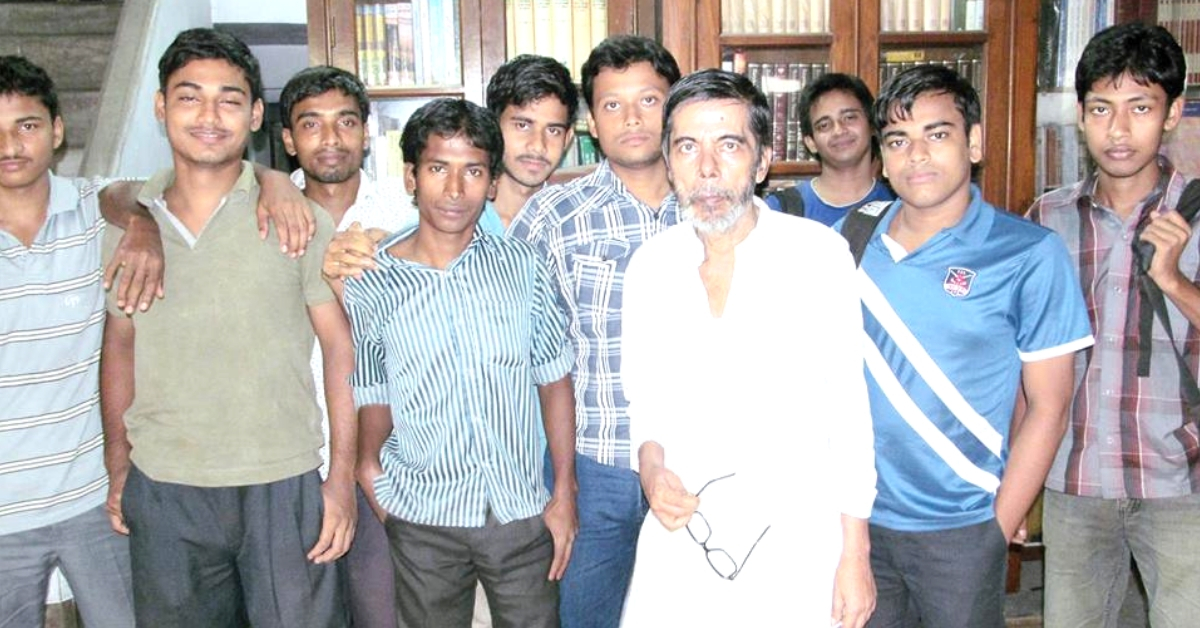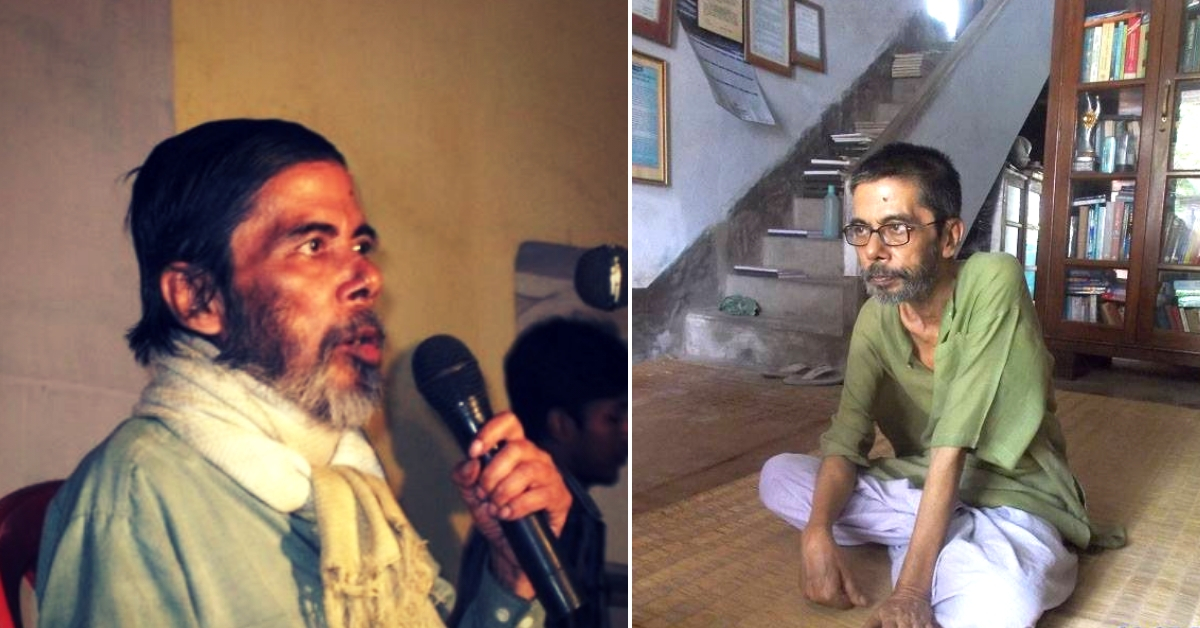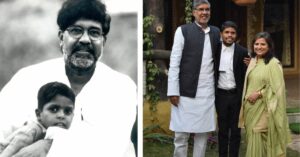Once a Naxalite, This Physics Teacher Has Educated Poor Kids For Free For 30 Years
"To every student irrespective of age from Basirhat and nearby areas, 'Sir' is akin to demi-god and more of a parent than their real parents."

Any one can learn from a book. But a #TerrificTeacher can make the difference between passing an exam and learning a life lesson. The Better India salutes those for whom teaching is not a job but a higher calling.
On Teacher’s Day, it does seem a touch odd to begin with the Naxalite movement of the late 1960s and early 70s. After all, what does a call for violent revolution against the Indian State have anything to offer a sober democracy?
Dr BR Ambedkar once said that if India were to maintain democracy not “merely in form, but also in fact,” it must abandon calls for a violent revolution.
“The first thing in my judgement we must do is to hold fast to constitutional methods of achieving our social and economic objectives. It means we must abandon the bloody methods of revolution,” he once wrote.
Subhash Chandra Kundu from Basirhat is a living embodiment of Ambedkar’s call for change, rejecting Naxalism for a life of teaching science to the masses.
The septuagenarian has contributed three decades of his life to teaching the wonders of science to underprivileged students in and around the Basirhat area of West Bengal, and that too, for free.
Most students who come to his Institute of Physics, which is a two-storeyed red building in Basirhat, belong to families who cannot afford to send their ward to college, let alone pay tuition fees.
Thanks to his efforts, many have stepped out of poverty and are now teaching at top institutions like the IITs and St Xavier’s College in Calcutta. Compare this to the vile, money-making and exploitative coaching centres that have mushroomed all around the country.
“I am here to spread the knowledge of science, especially among students from low-income families. How can I slap them with the burden of fees? Science is the way forward for these boys and girls. This can make them employable,” said Kundu to the Telegraph, a Kolkata-based daily.
It was in 1988 when Kundu established the Institute of Physics on a small plot of land he purchased from his siblings. Before setting up the institute, as a teacher at Basirhat High School, he would take tuition classes from students without any desire for remuneration.
Kundu believes that his modest salary as a government teacher was enough to sustain him, and following retirement, he relies on his pension. Thanks to generous contributions from former students and well-wishers, the institute has grown over the past three decades, although serious challenges remain since he does not take any fees from his students.
In the beginning, his students made small contributions, but the remaining funds to develop the institute came from the many loans he took. Today, the institute houses six rooms—two classrooms on the ground floor, while the rest of the rooms contain laboratories that he built and various scientific instruments donated and bought over the years.
“If you are from Basirhat and don’t know where the Institute of Physics is located, then it’s a matter of shame,” says Sayan Ganguly, a resident of Basirhat, speaking to The Better India.
“Kundu Sir is a teacher with an indomitable passion for education and only education, an institution. A man of extreme calibre, he knows no stopping. To every student irrespective of age from Basirhat and nearby areas, ‘Sir’ is akin to a demi-god and more of a parent than their real parents, and to the general public, he is a living legend. The magnificent physics laboratory set up at his home entirely by himself speaks volumes for him. His care, dedication, diligence and determination are a lesson for lives to come,” says Rajib Shil, a former student.
What inspired Subhash Chandra Kundu to undertake this noble responsibility of teaching students the value of science? Strangely enough, it was his time in the Naxalite movement.
“I was into active politics between 1968 and 1971, when I was teaching at Basirhat College. The movement floundered as we tactically pursued the wrong line. My biggest takeaway from the movement was being infused with the spirit to serve. After being released from the Dum Dum correctional centre in 1974, I decided to pursue a mission not through the path of armed revolution but by spreading science education among the poor,” he informed the Telegraph.

For him, teaching the wonders of science for free is an extension of his politics, which is to serve the poor and dispossessed.
“What should have been demanded through the ballot and not the bullet is accountability of such failures of the State as its inability to conquer poverty and inequality,” says Kundu in another interview. From Naxalism, this is a return to the principles of Ambedkar.
Also Read: Using Internet & Rs 7L from Own Pocket, Gujarat Teacher Gives Free Tuitions to Poor Kids!
Kundu repudiates the path the movement took, but at the same time, his experience there showed him the way forward, which is to serve the poor.
Despite suffering partial paralysis, a decade ago due to a cerebral stroke, he has not only continued his work but has also held exhibitions and quizzes across the district. He undertakes these activities to further generate interest in the sciences among the general population.
“My advice to them (teachers) would be to just do your job honestly and motivate the students. As I realised after coming out of the Naxalite stint, Albert Einstein is as relevant in Basirhat as he is in Europe or America. There is no impurity in education. So just keep teaching,” Kundu told the Telegraph.
(Edited by Gayatri Mishra)
Like this story? Or have something to share? Write to us: [email protected], or connect with us on Facebook and Twitter.
This story made me
- 97
- 121
- 89
- 167
Tell Us More
We bring stories straight from the heart of India, to inspire millions and create a wave of impact. Our positive movement is growing bigger everyday, and we would love for you to join it.
Please contribute whatever you can, every little penny helps our team in bringing you more stories that support dreams and spread hope.



















